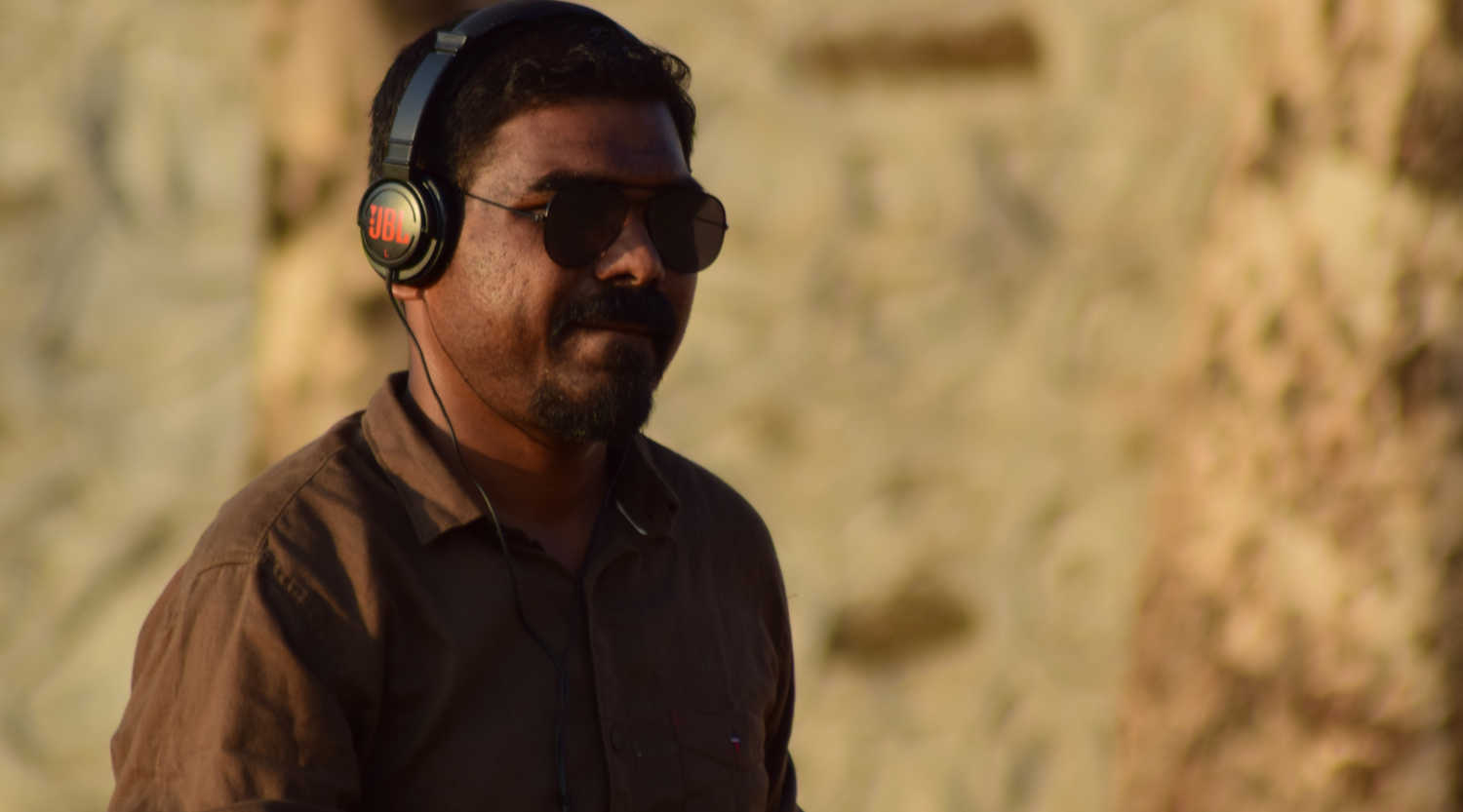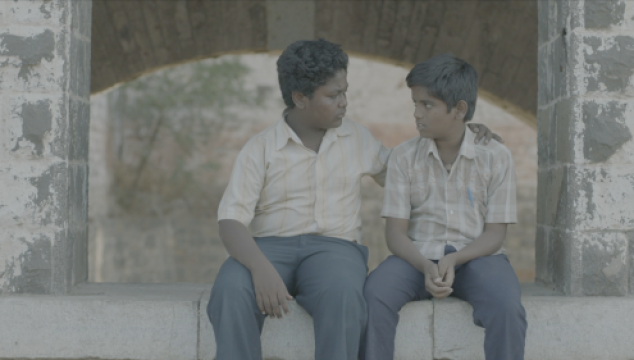Vinod Kamble speaks about his filmmaking journey and the struggle he had to go through to fund and make his debut film.
Kastoori is inspired by Iranian cinema, says filmmaker Vinod Kamble
Mumbai - 01 Aug 2020 1:02 IST


Sonal Pandya
The film Kastoori (The Musk), being streamed on MovieSaints till 2 August as part of the New York Indian Film Festival, is a bittersweet story of a schoolboy, Gopi, who has to help his parents clean toilets and perform post-mortems because of his caste.
The bright boy wins a prize for writing an essay and wants to make a perfume using the elusive kastoori to escape his classmates’ casteist slurs about his body odour.
With help from good friend Adim, Gopi attempts to procure the musk to make the scent. His journey is both hard and heartbreaking.
Vinod Kamble’s debut feature is a harsh but necessary look at the rigidity of the caste system which still persists in modern India. It is an emotional film, boosted by a luminous performance by the young Samarth Sonawane who plays Gopi.
Kamble spoke to Cinestaan between screenings of the film last year at the 20th Mumbai Film Festival, where it had its world premiere. The film’s cast and crew were present for its first screening. The self-taught filmmaker spoke of how he was always drawn to cinema, the struggles to make his first feature, and how his tea breaks led to some great casting decisions.

The filmmaker had been working on Kastoori for four years. Prior to that he made the short films Grahan and Post Mortem. Kastoori is a longer version of Post Mortem. From the beginning, Kamble had a clear vision for his film.
“When I was writing it, I had an image in mind of whom I wanted,” he said in a crowded corner of PVR ECX in Mumbai where the festival was being held. “I held auditions in my village, around 300 children came. For the lead, till about 5pm, no boy had come for the role, but in the last audition, this boy [Samarth Sonawane] came from tuitions and asked to be auditioned.
“I told him we were already closed, but we auditioned him anyway. He performed well. By default, his expressions and Hindi language were good, which was the requirement for the film,” he recalled, stressing that he wanted a boy who could learn.
Samarth, with his guileless smile, is instantly captivating as Gopi and Kamble knew there was something about the young artiste’s eyes that made you connect with him automatically. For the role of Gopi’s friend Adim, Kamble cast Shravan Upalakar, whom he knew from when both had worked on Mhorkya (2020). Luckily, the filmmaker didn’t have to make any changes to his script once he cast Sonawane and Upalakar.

Kamble also revealed how two of Kastoori’s key pieces of casting happened when he was taking a chai break. “Where we used to stay, we used to go to a canteen to drink tea,” he said of casting Gopi’s grandmother. “The mousi [aunt] that was there, she was her mother. My assistant director and I were drinking tea, and saw that she is sitting there. She is a 90-year-old. After tea, my assistant told me, she might work out [for the film].”
When they approached both daughter and mother for the film, they had no issues, but the older woman wondered how she would fit in physically. “So I told her, you don’t worry, we are with you,” he said. “I kept a lady assistant for her to look after her. Her Hindi was very good. Her history was also very interesting. Her name was Janabai and after marriage to a Muslim man, she became Jannat.”
Gopi learns about the story of Gorakshanath after attending a religious discourse with his grandmother. The nonagenarian knew extensively the mythology of Hindus and Muslims and was able to slip into the role of wise grandmother easily.
Kamble needed another older actor for the part of the aged uncle who sells attar (perfume). He and his team used to wait outside the masjid hoping someone older would be willing to act. “We even stopped a few people, asking if they would act," he recalled.
"I wanted someone older, like an 80-year-old, because he should have that much experience that he can just look and say this kastoori is duplicate. My team said forget it, you won't get someone that old. Go for someone who is 70, but I insisted.” he said, adding that they eventually found their man in the canteen outside the masjid. He was the chaiwala!

The filmmaker wrote and shot the film in his village, Barshi, in the Solapur district of Maharashtra. “When I was writing the script, I used to go out and look at the location and then come back and write,” he explained. “I have been to all of those places, it’s where my life has been spent and Gopi’s as well. Common cheezon ko maine ekkhata kiya hai [I’ve put common things together for the film].”
The film took a long time to make, mainly because of funding problems. Many times, Kamble had to ask friends for money. He said he was also grateful to the nine women who make up Insight Films that came together and made Kastoori. “It is important that they gave a lot of freedom while working so I can speak freely, so I thank all the nine women,” he said.
Kamble was interested in cinema from a young age. A tree behind his house regularly had a poster for the movie of the week in the village, and he used take a poster from the man who changed it and stare at it on his wall. His village had four theatres, and Kamble would go to watch all kinds of films there, in every language.
“Since childhood, I’ve only liked watching movies,” he reminisced. “I didn’t understand Hindi or English then. I’ve stolen money, sold scrap to watch films. There’s a scene in the film where the dadi goes to sell scrap. I used to go there and then go and watch films. I’ve shot there as well.”
That obsession with cinema planted the seed that someday he would make films as well. “That same confidence came when I saw Fandry (2014), Kaul (2016), Gangs Of Wasseypur (2012), and the realism in those films,” Kamble said. “People are coming from small towns and making films, and showing their own stories. So I thought I should try.
“There was an incident when I was in Pune giving an exam, and behind the question paper, I wrote my script for the first time,” he continued. “I didn’t even know then it was a script, what we call a screenplay. What I saw in front of my eyes, I wrote. That's when I realized I’m in the wrong place.”
Even though he had spent a year already in the course, he left everything behind to return to his village and joined a theatre company, began working backstage and made two short films.
Kamble calls the renowned Iranian director Majid Majidi one of his filmmaking inspirations. “I love Iranian films," he said. "Their films are as it is, they show realism, and show it very easily. I think my film is inspired by Iranian cinema.”
Related topics
New York Indian Film Festival Mumbai International Film Festival MovieSaints

